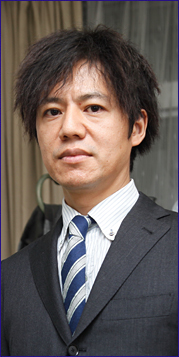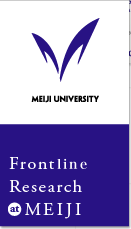

How the Realities I Encountered as a Graduate Student Changed Me
I initially become interested in science and technology during my first year of elementary school, when my grandmother bought me an electric pencil sharpener. I was thrilled to use this new device, but one day I heard a newscaster on TV say that "today's children don't even know how to sharpen pencils with a knife anymore" in a somewhat condescending manner. At the time, I didn't understand why people forced new technologies upon us that we never asked for, and then made us feel foolish for using those same technologies. Eventually, I came to sense a problematic relationship between human beings and science/technology.I was very interested in science during my student years, and I strongly believed that "new forms of energy would save the world." When I think back on this, I realize that I poured my energy into research on energy created through nuclear fusion based on this very one-sided idea. One day, I was greatly surprised to encounter a person passing out flyers in opposition to nuclear fusion research. As embarrassing as it was to admit, I had never thought that there were people who opposed this field of research to such an extent. What should scientists' attitudes be toward this reality? What does it really mean to help people? The same problems I sensed as a child came rushing back to me, and from then I dedicated myself to the anti-nuclear movement. After various complicated developments, I quit the movement and became involved in my current research overseas, but the nagging doubt still remains a major issue in my mind.
Research Focused on the Negative Aspects of Nuclear Energy
The subject of my research is spent nuclear fuel (SNF), something many people have become aware of since the accident that occurred in Fukushima. Some people refer to SNF as the "garbage" or "litter" produced by nuclear power plants, and because this waste contains radioactive components with long half-lives and its reprocessing technique is the same as that utilized in the manufacture of nuclear weapons, the reprocessing method for SNF has become an extremely difficult problem. What types of approaches to reprocessing are technologically possible? How should we respond to the thoughts of people living in society? How do international governments think Japan should respond to this issue? Through my investigations, research and analyses, I am seeking out ways to deal with these issues.It seems to me that researchers who deal with the negative aspects of nuclear power plants in this way are rare in Japan. That is why I am conducting my work with researchers overseas, but I want to communicate the results of this research as widely as possible throughout Japan in an easily understandable manner. Since before the Fukushima incident, I have been continually holding study workshops for citizens and students. In addition, I have taken up the nuclear power issue as part of social science education in the Graduate School of Humanities, focusing mainly on the theme of "viewing the world through nuclear power plants" in my lectures.
The Ability to Separate Scientific Realities and Value Judgments in Our Thinking
Because I have seen and experienced both worlds—those who support nuclear power plants and those who oppose them—I feel that I should possess the ability to separate realities and value judgments within my thought processes. Scientific research often ends with mere elucidation of the facts and realities of research topics, but with the nuclear power issue I think it is very important to follow this up with value judgment, to think of how to understand the realities that have been brought to light. When it comes to discussions on nuclear power, realities and value judgments become intermixed for each individual in ways that depend on their own experiences. That is why it is necessary for scientists and specialists to possess the ability to separate the two in their thinking.During graduate-course lectures, I often talk about my own experiences and thoughts, but these are based on my own value system which is merely one of many. With the exception of scientific facts and realities, I don't want students to unquestioningly believe what I say simply because it is the opinion of a one of their teachers. More than a year has passed since the Fukushima incident, and in Japan the time has come to think not of "what Japan should do," but instead to think of "what Japan wants to do." I want all of my students to become people with self-determination who can decide "this is what I want to do" or "this is what I will do." I want students to cultivate the ability to think for themselves, and to then take responsibility for what they have decided and live their lives accordingly.
Profile
Associate Professor, Graduate School of Humanities, Meiji UniversityBorn in Kagoshima Prefecture. Specializes in nuclear engineering and nuclear energy policy. Current research themes are management of spent nuclear fuel and the plutonium disposal problem. Graduated from the Hiroshima University Graduate School of Engineering (Ph.D. in engineering) in 1997, and began working in his current position in 2009. He is involved as a member of a council on the Fukushima Daiichi Nuclear Power Plant accident, etc. Recent academic writings include "Fukushima Daiichi Nuclear Power Plant and Six Problematic Areas in Reprocessing" (Kagaku, Iwanami Shoten, June of 2012).









